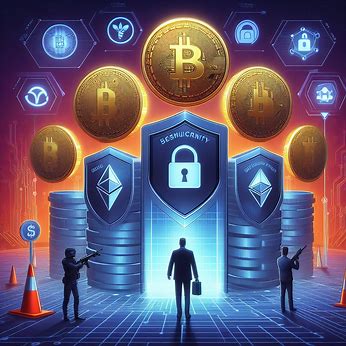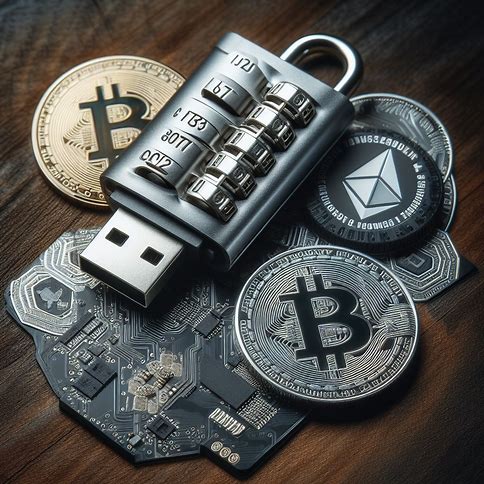When it comes to trading cryptocurrencies, security should be a top priority. With the rise of cyber threats and hacks targeting exchanges, it’s very important to choose a platform that prioritizes the safety of your funds. Here are 10 Cryptocurrency exchanges with the highest security ratings and certifications.
1. Coinbase
Coinbase, a leading U.S.-based exchange, has earned a reputation for its strong security practices. The platform stores 98% of customer funds in cold storage, ensuring protection against online threats. Coinbase has also obtained the SOC 2 Type II certification, demonstrating its adherence to strict security and privacy standards. Additionally, the exchange offers two-factor authentication (2FA) and insurance coverage for stored funds.
2. Gemini
Founded by the Winklevoss twins, Gemini is a New York-based exchange known for its focus on security and regulatory compliance. Gemini is one of the few exchanges to have obtained the SOC 1 Type II and SOC 2 Type II certifications, showcasing its commitment to maintaining a secure trading environment. The platform also implements hardware security modules (HSMs) to protect private keys and supports 2FA for added account security.
3. Kraken
Kraken, a veteran exchange in the crypto space, has built a strong reputation for its security measures. The platform conducts regular security audits and stores a majority of user funds in cold storage. Kraken has also obtained the SOC 1 Type I and SOC 2 Type I certifications, demonstrating its adherence to industry security standards. The exchange offers 2FA, global settings lock, and a custom API key generation feature for enhanced account protection.
4. Binance
Binance, one of the world’s largest cryptocurrency exchanges, has implemented a multi-tier and multi-cluster system architecture to ensure high levels of security. The platform stores a significant portion of user funds in cold storage and offers 2FA, withdrawal address whitelisting, and device management features. Binance has also established the Secure Asset Fund for Users (SAFU) as an emergency insurance fund to protect user assets.
5. Bitfinex
Bitfinex, a Hong Kong-based exchange, has developed a robust security infrastructure to safeguard user funds. The platform stores a majority of user assets in cold storage and implements multiple layers of security, including 2FA, IP address monitoring, and email encryption. Bitfinex also conducts regular security audits and works with reputable security firms to enhance its defenses.
6. Bitstamp
Bitstamp, a Luxembourg-based exchange, has prioritized security since its inception. The platform stores 98% of user funds in cold storage and has implemented multiple security measures, including 2FA, email confirmations for withdrawals, and mandatory SSL encryption for all website traffic. Bitstamp has also obtained the ISO/IEC 27001:2013 certification, demonstrating its commitment to information security management.
7. Huobi Global
Huobi Global, a Singapore-based exchange, uses a multi-layer security system to protect user assets. The platform stores a majority of user funds in cold wallets and implements strict access controls for hot wallets. Huobi Global offers 2FA, anti-phishing codes, and a security reserve fund to compensate users in case of security breaches. The exchange also conducts regular security audits and collaborates with leading security firms.
Related: 8 Cryptocurrency Trading Platforms With Best Charting and Technical Analysis Tools
8. OKEx
OKEx, a Malta-based exchange, has implemented a comprehensive security framework to safeguard user funds. The platform stores a significant portion of user assets in cold storage and employs a multi-signature mechanism for fund transfers. OKEx offers 2FA, anti-phishing protection, and a security question feature for enhanced account security. The exchange also has a risk management department that monitors suspicious activities and conducts regular security audits.
9. Bittrex
Bittrex, a U.S.-based exchange, has earned a reputation for its robust security measures. The platform stores 80-90% of user funds in cold storage and implements multiple layers of security, including 2FA, IP address whitelisting, and a host of internal controls. Bittrex also conducts regular security audits and has a dedicated security team that monitors the platform 24/7.
10. Crypto.com
Crypto.com, a Hong Kong-based exchange, has made security a top priority. The platform stores 100% of user funds in cold storage and has obtained the ISO/IEC 27001:2013, ISO/IEC 27701:2019, and PCI:DSS 3.2.1 certifications, demonstrating its commitment to information security and privacy. Crypto.com offers 2FA, withdrawal address whitelisting, and a $750 million insurance policy to protect user assets.
Key Takeaway
1. Prioritize exchanges with robust security measures and industry-recognized certifications.
2. Look for platforms that store a majority of user funds in cold storage to protect against online threats.
3. Ensure the exchange offers two-factor authentication (2FA) for enhanced account security.
4. Check if the exchange has obtained certifications such as SOC 1, SOC 2, ISO/IEC 27001, or PCI:DSS, demonstrating adherence to security standards.
5. Consider exchanges that conduct regular security audits and collaborate with reputable security firms to enhance their defenses.
Frequently Asked Questions
1. What is cold storage, and why is it important for cryptocurrency exchanges?
Cold storage refers to the practice of storing cryptocurrency funds offline, disconnected from the internet. This method helps protect user assets from online threats such as hacks and cyber attacks. Exchanges that store a majority of user funds in cold storage demonstrate a commitment to security and minimize the risk of funds being compromised.
2. What is two-factor authentication (2FA), and how does it enhance account security?
Two-factor authentication (2FA) is an additional layer of security that requires users to provide a second form of verification, beyond just a password, to access their accounts. This can include a code sent to a mobile device, a biometric factor, or a hardware token. 2FA helps prevent unauthorized access to user accounts, even if a password is compromised.
3. What are SOC and ISO/IEC certifications, and why are they important for cryptocurrency exchanges?
SOC (System and Organization Controls) and ISO/IEC (International Organization for Standardization/International Electrotechnical Commission) certifications are industry-recognized standards that demonstrate an exchange’s adherence to strict security and privacy practices. These certifications, such as SOC 1, SOC 2, and ISO/IEC 27001, involve rigorous audits and assessments, ensuring that the exchange has implemented robust security controls and follows best practices.
4. Can an exchange’s security measures guarantee the safety of user funds?
While exchanges with strong security measures and certifications significantly reduce the risk of security breaches and fund losses, no exchange can guarantee 100% safety of user funds. It’s essential for users to also take responsibility for the security of their accounts by using strong passwords, enabling 2FA, and following best practices for cryptocurrency storage and trading.
5. How can users further protect their funds when trading on cryptocurrency exchanges?
In addition to choosing exchanges with strong security measures, users can further protect their funds by:
- Using a unique, strong password for their exchange account
- Enabling two-factor authentication (2FA)
- Regularly updating their account security settings
- Withdrawing funds to a personal wallet when not actively trading
- Being cautious of phishing attempts and suspicious emails or links
- Keeping their device’s security software up to date.










